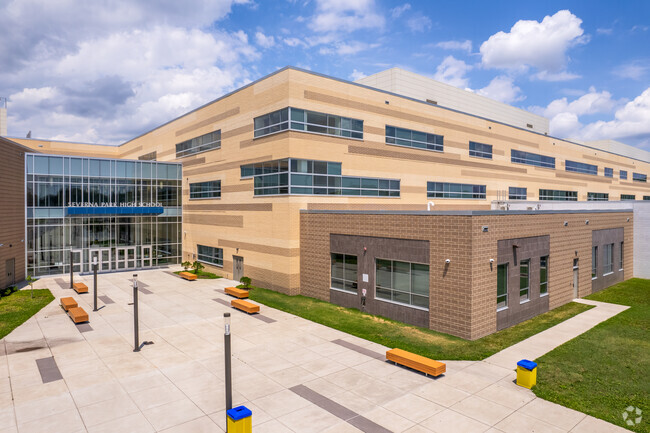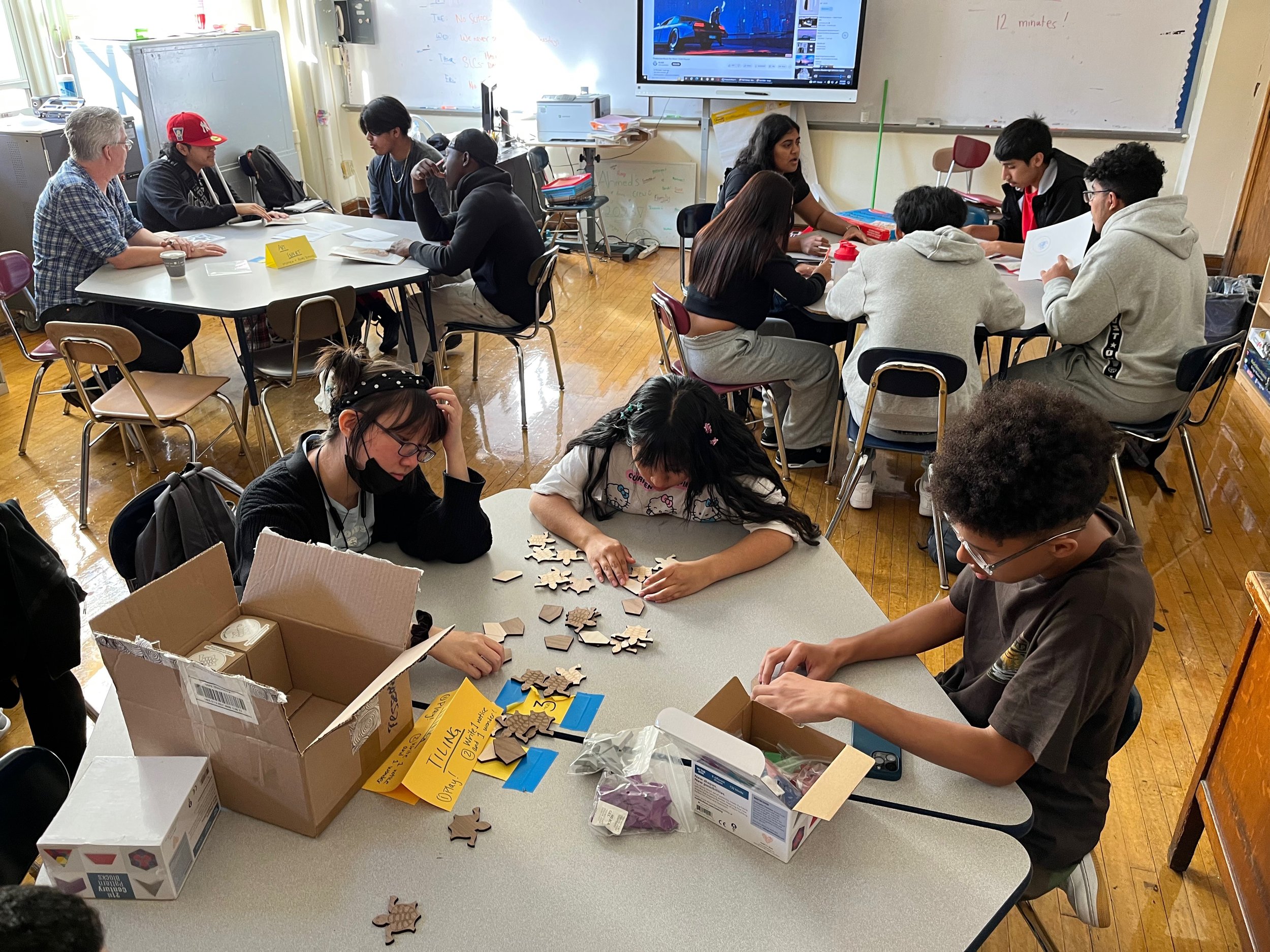Join Us: Occasions and Initiatives to Save Temecula Schools
Join Us: Occasions and Initiatives to Save Temecula Schools
Blog Article
Recognizing the Relevance of Schools in Youngster Development and Neighborhood Growth
Schools function as critical organizations for kid growth and community development, supplying environments where academic success are enhanced by the farming of social abilities and exposure to varied viewpoints. These educational settings not just promote crucial reasoning and reliable communication but additionally foster empathy with joint tasks. Additionally, colleges' engagement with neighborhood areas through service-learning efforts strengthens the bond between family members and universities. This cooperative partnership emphasizes the value of institutions in supporting active citizenship and lifelong learning habits. What are the particular systems by which these organizations achieve such profound impacts?
Academic Success
Academic achievement functions as a keystone of kid growth, supplying the foundation upon which future learning and success are developed. Schools play a crucial role in cultivating this academic development, using structured atmospheres where children can obtain vital knowledge and cognitive abilities. Standardized educational program make sure that pupils gain effectiveness in core subjects such as mathematics, science, and language arts, which are important for both greater education and learning and professional chances.
Along with presenting fundamental scholastic skills, schools also cultivate important thinking, problem-solving capabilities, and intellectual interest. These cognitive proficiencies are important for browsing complicated real-world situations and adjusting to the ever-evolving demands of the modern workplace. Educators, as facilitators of learning, employ varied instructional techniques to deal with different discovering styles, consequently optimizing individual student capacity.
Additionally, scholastic success is closely linked to self-confidence and inspiration. Youngsters that experience academic accomplishments are most likely to develop a positive self-concept and a long-lasting interest for learning. Colleges also provide different resources, such as libraries and technology, which additionally improve the instructional experience and prepare trainees for a highly innovative culture.
Social Ability Advancement
Beyond scholastic success, the duty of colleges in social skill advancement is indispensable. Schools work as a primary location for kids to find out and exercise crucial social skills such as cooperation, conflict, and interaction resolution. In the structured environment of a class, students interact with peers, teachers, and various other institution team, supplying countless possibilities to create these essential capabilities.
Effective social ability development in colleges is helped with through group tasks, collaborative projects, and extracurricular programs. These communications assist pupils recognize social norms, construct compassion, and cultivate a feeling of community. As an example, team projects teach pupils exactly how to interact in the direction of a common objective, listen to different point of views, and navigate disagreements constructively.

The cultivation of social skills during academic year lays a foundation for future individual and specialist relationships. Save Temecula Schools. As pupils mature, the capability to properly collaborate and communicate ends up being progressively vital, highlighting the institution's critical duty in alternative kid advancement
Direct Exposure to Variety
Direct exposure to variety in colleges is basic to fostering an inclusive attitude and widening pupils' perspectives. Schools offer as a microcosm of the more comprehensive culture, and experiencing varied societies, languages, and socioeconomic histories within this setting equips address pupils with necessary abilities for browsing a significantly globalized globe. This exposure motivates empathy, decreases prejudices, and promotes shared regard among peers.
Diverse class likewise boost cognitive and social development. Research study shows that pupils who interact with peers from diverse histories exhibit better analytic abilities and creative thinking. They learn to value various perspectives, which enriches classroom discussions and cultivates an extra vibrant understanding experience. This understanding of variety prepares students for future work environments that value modern proficiency.

Neighborhood Interaction
The advantages of varied class expand past the institution wall surfaces, fostering a strong sense of community involvement among trainees. By engaging with peers from different cultural, socioeconomic, and ethnic histories, pupils obtain a broader viewpoint and an appreciation for diversity. This exposure encourages them to become active people that are eager to add favorably to their areas.
Institutions that highlight neighborhood interaction typically integrate service-learning jobs, which allow students to address real-world issues while using academic skills. These projects not just boost trainees' understanding of their coursework however also instill a feeling of obligation and empathy. Furthermore, partnerships in between institutions and regional organizations give pupils with chances to join community occasions, additionally solidifying their duty as aggressive neighborhood members.
In addition, parental and community participation in colleges strengthens the bond in between academic establishments and the areas they offer. With these initiatives, colleges play a pivotal role in nurturing area engagement and fostering societal growth.
Lifelong Discovering Habits
Establishing long-lasting understanding routines is crucial for a child's continuous growth and versatility in an ever-changing globe. Schools play a pivotal role in instilling these practices by producing an atmosphere that cultivates inquisitiveness, critical thinking, and a love for knowledge. With extracurricular activities and varied curricula, instructors urge pupils to discover different subjects, evaluate info critically, and apply their learning to real-world circumstances.

In addition, institutions offer an organized here are the findings setting where children can establish self-discipline and time monitoring skills, both of which are important for continual learning. By highlighting the significance of setting goals, assessing progression, and adjusting strategies, educational establishments prepare students to navigate the complexities of adult life, guaranteeing they stay long-lasting students and factors you could try these out to culture.
Verdict
In conclusion, colleges are important in fostering kid advancement and neighborhood growth by providing environments for academic achievement, social skill development, and exposure to diversity. With collective jobs and interactions, schools boost essential reasoning, compassion, and communication skills. Community involvement initiatives additionally reinforce the bond in between academic organizations and local communities. Eventually, schools cultivate lifelong learning behaviors, outfitting people with the essential knowledge and abilities to add positively to society.
In the organized environment of a classroom, pupils communicate with peers, educators, and various other institution staff, providing various chances to develop these important capacities.
In significance, direct exposure to variety within colleges not just enhances specific pupils but likewise reinforces the social textile of the area as a whole.
The benefits of diverse classrooms prolong past the institution wall surfaces, cultivating a strong sense of area interaction among pupils.Institutions that stress area engagement usually incorporate service-learning projects, which allow trainees to deal with real-world problems while applying scholastic skills. Collaborations between schools and neighborhood organizations offer students with opportunities to participate in area events, better strengthening their function as proactive neighborhood participants.
Report this page